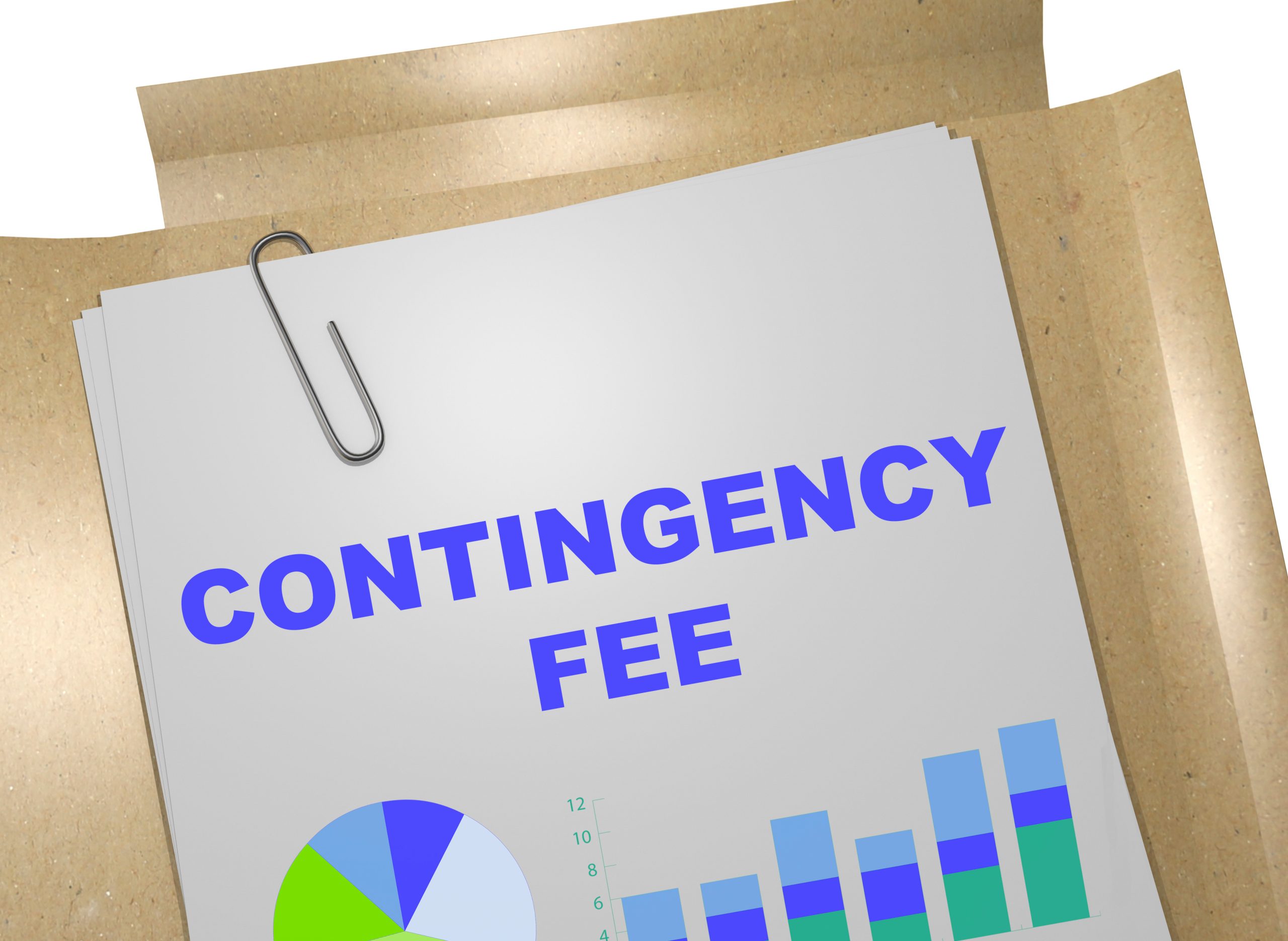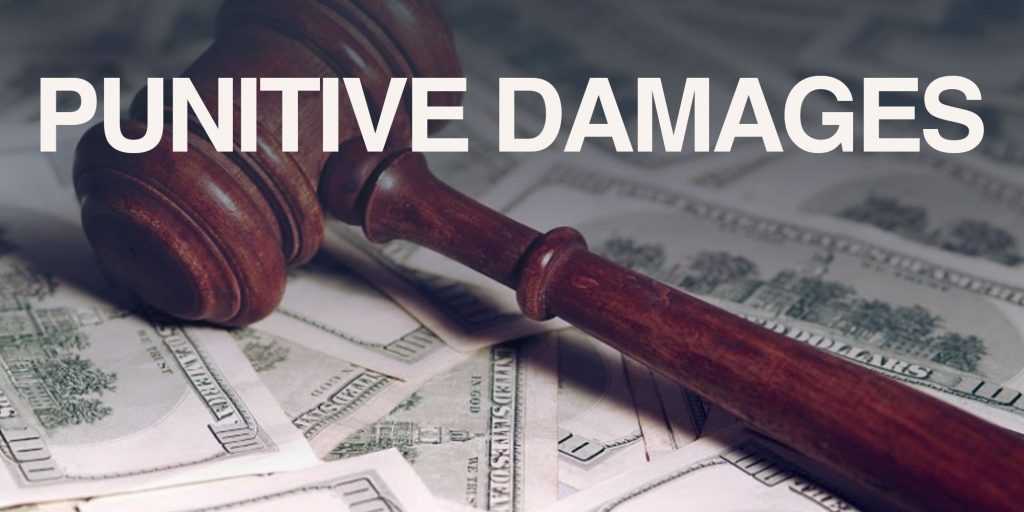What is a contingency fee?
Have you seen an advertisement with a confident lawyer in a suit promising they won’t be paid “unless you are”? These ads sound extremely promising to many people who are facing legal situations-especially since the attorney is essentially talking about being paid on a contingency basis.
A contingency agreement is a billing method that pays an attorney a percentage of damages awarded after the conclusion of a case, instead of an hourly fee. The attorney accepts the case on a contingency basis, and does not charge their usual hourly rate. The attorney receives a percentage of damages awarded to the client at the conclusion of the case in exchange for taking on the case.
Contingency fees range between 5% and 50% depending on the state in which you live and the terms of your agreement. The lawyer will not be paid if the client loses their case. Payment to the attorney is “contingent” upon winning a case.
The client is still responsible for some upfront fees, even though the lawyer doesn’t get paid until the end of a case. The client might be responsible for filing fees at the court, costs of discovery, fees of expert witnesses, or other overhead expenses to move their case forward.
When are Contingency Fee Agreements Used?
In cases where the client has limited funds but a complex or expensive case, contingent fees can be helpful. Civil litigation lawyers accept cases where there is a clear liability, and the client has a way to collect a settlement or judgment. In cases where the liability is unclear or the case is deemed too risky, an attorney may refuse to accept the case even on a contingent basis.
Most often, contingency fee agreements apply to civil cases such as personal injury or workers’ compensation. However, attorneys can accept work under a contingency agreement in other situations, including:
Professional Malpractice;
Sexual Harassment;
Personal Injury;
Employment Discrimination Cases and Wage Disputes;
Bankruptcy;
Class Action Lawsuits
Debt Collections Cases
When are Contingency Fee Agreements Not Allowed?
In some cases, contingent fee agreements can be beneficial. This is especially true when the client needs financial help. In some cases, however, the law prohibits them. The lawyer should charge a reasonable fee if the case is clear and obvious. Otherwise, it may seem that the client has been taken advantage of.
Moreover, professional ethics rules prohibit attorneys from accepting contingency fees in criminal or family law cases because it would seem to encourage or condone criminal or divorce activity. According to the state laws, contingency fee agreements may be prohibited for immigration, bankruptcy, and drafting of contracts, wills or trusts.
There are several benefits to clients who agree to a contingency fee arrangement:
No upfront fees. A contingency fee arrangement is a great way to avoid paying your lawyer in advance and to avoid huge legal fees while your case is ongoing. Many people think that it gives those with lower incomes easier access to the court system and legal services.
Incentive. Your attorney will do their best to win your case. Your attorney will do all they can to achieve the best result for you if they are not paid until you receive payment.
No costs for losses. A contingency fee arrangement also means that you won’t be paying an attorney’s fee if your case doesn’t turn out the way you hoped. (You may, however, still have to pay some administrative fees.) Some people may find this arrangement comforting. If the lawyer is willing not to collect a fee, they probably have a high chance of winning the case.
As with everything, contingency fee arrangements have their own disadvantages. You may end up paying more for a contingency fee than you would with an hourly rate. You will be liable for the agreed percentage, no matter how long it takes to resolve the case. It is particularly true for cases that are clear and only require a few calls and a few hours of work to settle. Before you decide, discuss all your options with an attorney. Some attorneys offer flexible contingency fees depending on the outcome.
Attorneys who accept cases on contingency may be more selective in the cases that they take on. They may avoid cases they do not think are easy to win, or negotiate higher fees for more “risky” cases.
How much can a lawyer earn in contingency fees?
The amount of the contingency fee is determined by several factors.The contingency fee may be determined by the nature of the case. Some lawyers charge in layers or tiers. Contingency fees are usually around 33%-40%, but can be higher or less depending on the value and agreement between the lawyer and client.
You should always have a written copy of the fee agreement so you know exactly what it entails.
It depends. In general, lawyers and clients can use their discretion to decide on fees. If the court determines that the contingency agreement is unfair or unreasonable, it may invalidate it or amend it in order to make it reasonable. The court will consider several factors to determine if the fee agreement in its original form was reasonable.
Time spent by the lawyer in preparing for and working on a case.
How much work the lawyer has had to give up in order to handle this case;
Attorney fees in similar cases.
The total damages awarded and the amount in dispute in the case;
Experience, reputation and abilities of the lawyer.
The probability of success in a case.
Can you Negotiate the Contingency Fee?
Negotiating a lower fee may be possible if your case is strong, and you have a high chance of winning significant damages. Negotiating a lower fee may require some patience and some legwork. You may have to shop around to find an attorney willing to accept your case at the fee that you want.
You may also be able to negotiate a fee arrangement with some attorneys. Some attorneys may charge a variable fee that is based on how much time they spend on your case. The lawyer might charge a contingency fee of 25% if he settles the case before trial. He may also charge 30% if he goes to trial. And higher percentages are charged if he appeals. Some lawyers offer a fee that is based on the value of the award. For example, 30% of the first $100,000 and 25% of the next $100,000.
Some contingency arrangements combine hourly rates with contingency payments. You may be charged $250 per hour by the lawyer, but only $50 per hour is required until you win your lawsuit. The rest of the attorney fees will come from the damages. These types of arrangements can be made at the discretion of both the lawyer and client. They may only be used when the winning party is entitled to recover the fees of the losing party.
Discuss fee arrangements with your attorney in your initial meeting. Ask to discuss all options before making a decision about hiring an attorney.
Should an Attorney Represent Me on Contingency Fee Basis
If you feel you have a strong legal claim but cannot afford to pay for litigation upfront, a contingency fee arrangement can be incredibly useful. Remember that lawyers aren’t required to offer contingency fees.
You should consult an experienced civil lawyer to determine your chances of winning a trial if you feel you have a strong case. You should discuss all possible fees with your lawyer so you understand exactly what you will pay and how it will be handled.
Understanding the contingency fee structure of your attorney will help you to feel more comfortable during your case.









